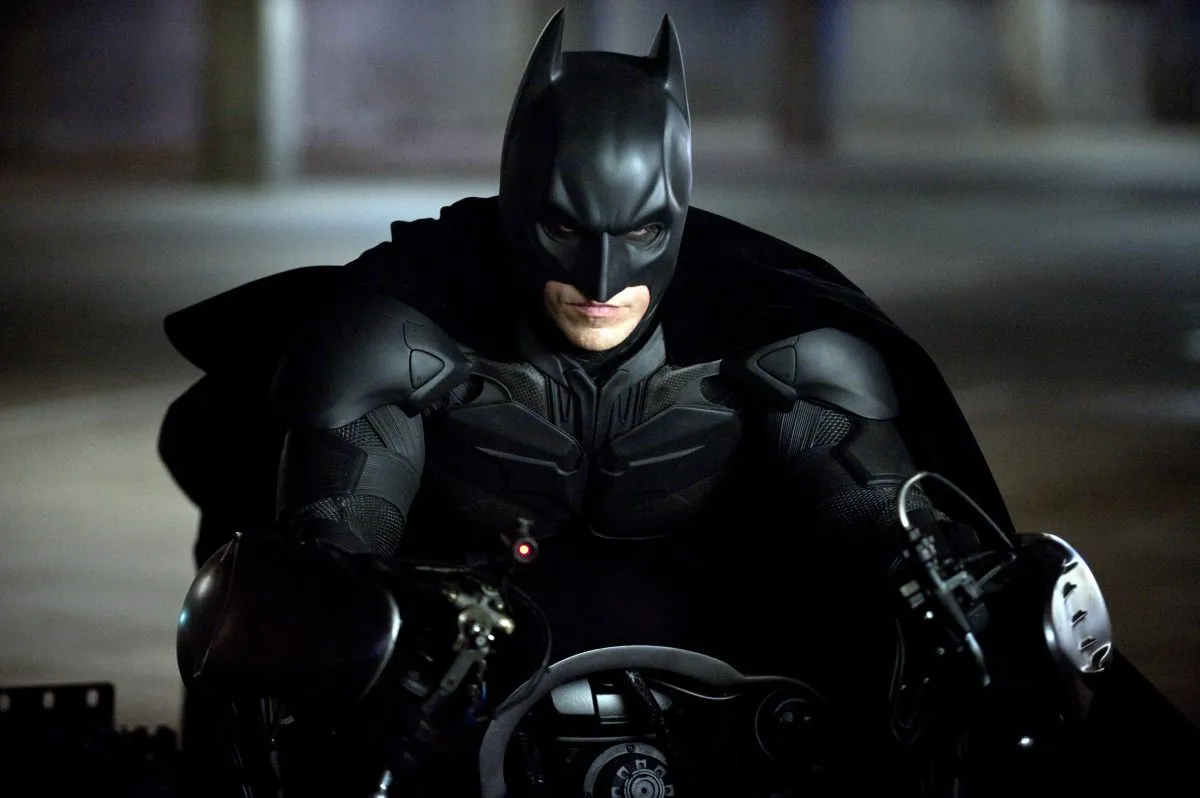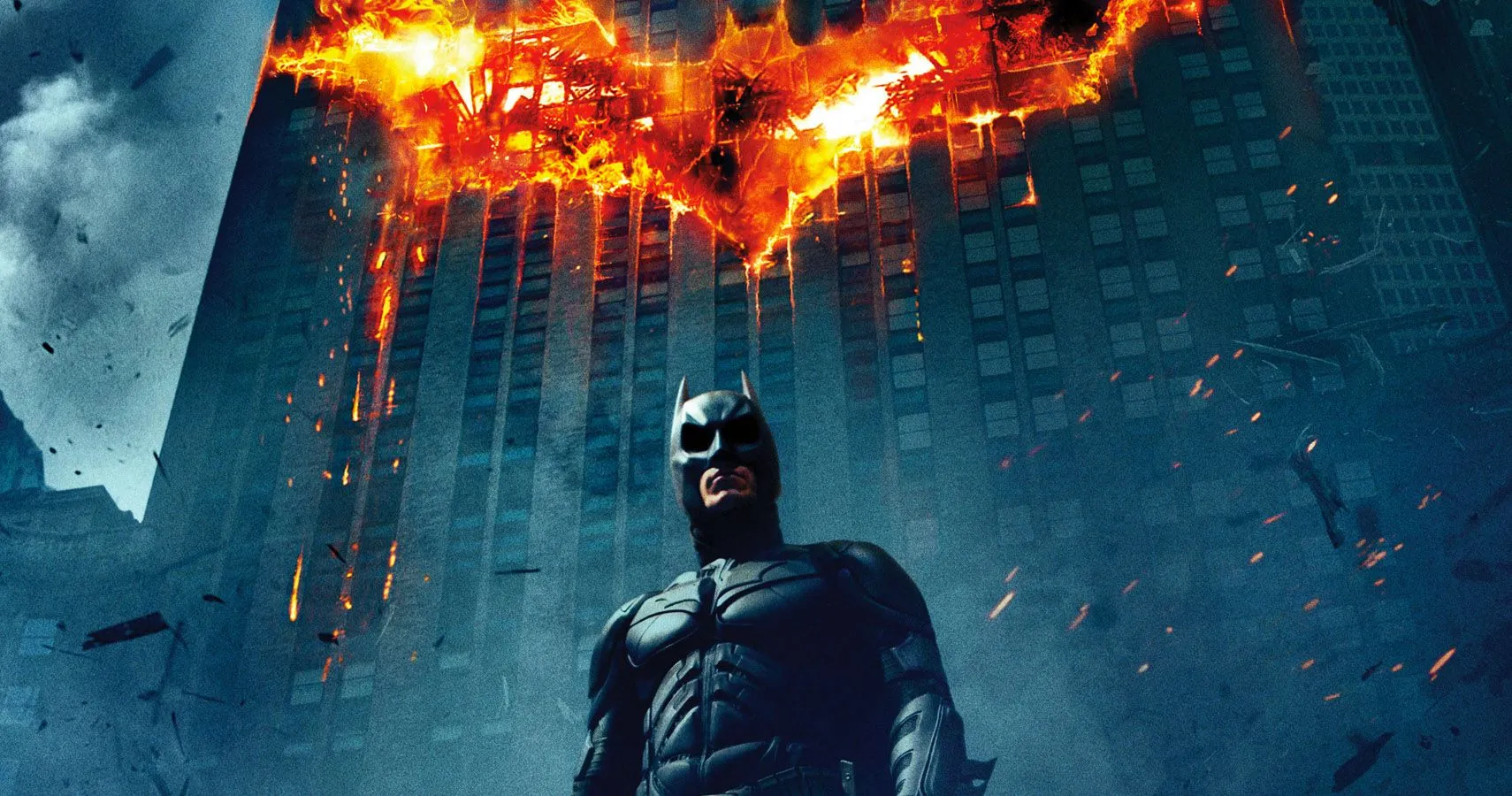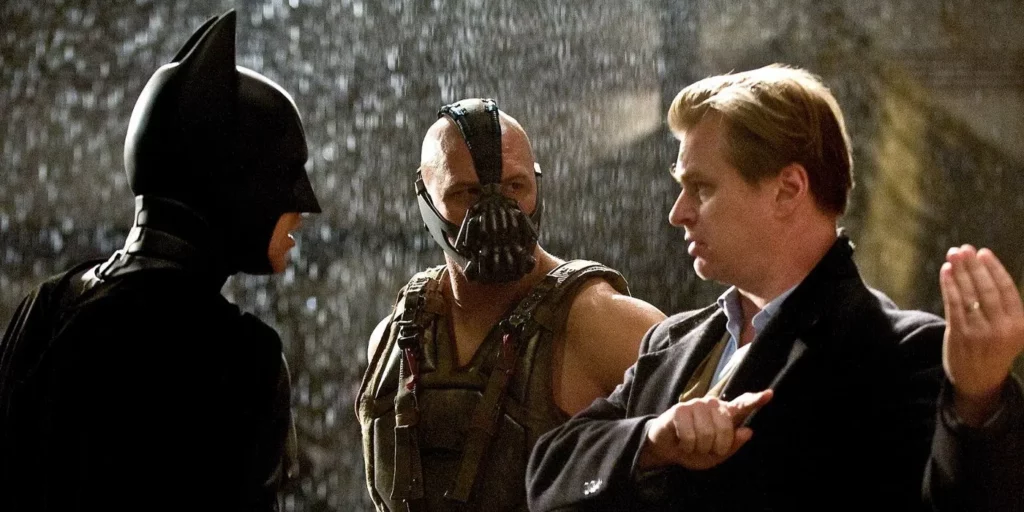In the annals of modern cinema, few directors have imprinted their vision as distinctly as Christopher Nolan. Known for his intricate narratives and pioneering use of IMAX technology, Nolan transformed the landscape of blockbuster filmmaking. His movies, especially the Batman trilogy, not only revived a flailing superhero but also set a benchmark for narrative depth in action cinema. However, Nolan’s journey has not been without its controversies.

The Controversial Legacy of The Dark Knight Rises
“The Dark Knight Rises,” the final installment of Nolan’s Batman trilogy, remains a significant chapter in his career for various reasons. Unlike its predecessors that celebrated accolades and critical acclaim, this 2012 release met with a divisive reception due to its perceived political undertones. The portrayal of Tom Hardy’s Bane was unexpectedly compared to then-political figure Donald Trump, casting a long shadow over the film’s narrative.
Christopher Nolan, expressing his dismay, noted the unusual direction of the audience’s interpretation. “Of all of my films, The Dark Knight Rises is the one that’s been pushed and pulled in the weirdest number of directions. I think you have to go out of your way to look at the film…” he shared in a tweet through his dedicated art and updates account. His frustration underscored a fundamental disconnect between his artistic intention and the audience’s perception, highlighting the unpredictable nature of film as a public artifact.
The Influence and Departure from Superhero Cinema
This unexpected backlash had a profound impact on Nolan, who decided that The Dark Knight Rises would mark his final venture into the superhero genre. Despite the controversy, the film maintains a strong approval rating on Rotten Tomatoes and marked the last appearance of Christian Bale as the iconic Caped Crusader. Nolan’s decision to step away from superhero films after this experience emphasized his need for creative freedom and narratives that resonate more closely with his vision.

Nolan’s Cinematic Journey Beyond Gotham
Christopher Nolan’s contributions to cinema extend far beyond Gotham City. From the mind-bending streets of “Inception” to the vast expanses of “Interstellar,” and the intense war scenes of “Dunkirk,” his work continues to push the boundaries of film. His most recent triumph, “Oppenheimer,” a deep dive into the complex life of one of the fathers of the atomic bomb, not only garnered critical acclaim but also won him his first Oscar for Best Director, while Robert Downey Jr. clinched an Oscar for his role in the film.
Now, as Nolan transitions from science fiction and biopics to historical fiction, he takes on a new challenge with his adaptation of Homer’s “The Odyssey.” This shift represents a significant turn in his career, venturing into the rich tapestry of Greek mythology with the same fervor he applied to his earlier works.
Christopher Nolan’s career is a testament to the power of visionary storytelling and its impact on both audiences and the cinematic landscape. While “The Dark Knight Rises” may have stirred more debate than Nolan intended, it remains a crucial part of his filmography, illustrating both the potential and the pitfalls of creative interpretations. As he moves forward with new projects, his journey reminds us of the dynamic dialogue between a filmmaker and his audience, where each interpretation can redefine a film’s legacy in unexpected ways.

